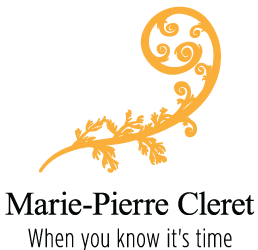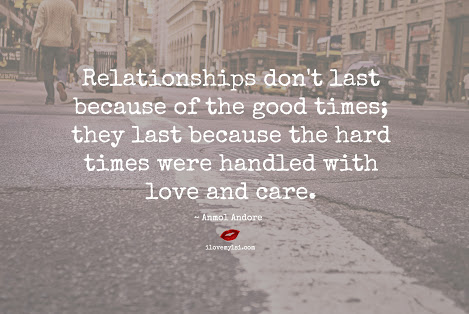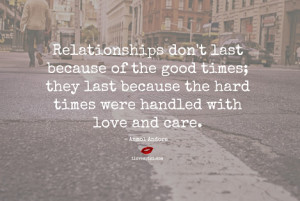Relationship Distress ~ Wishful Thinking
A friend and colleague and I went to attend a day workshop on the topic of relationships run by one of the leading lights in the New Age movement, Marianne Williamson1, sponsored by the WakeUp! project. As I sat amidst the buzz of the auditorium in Sydney, I saw hundreds of eager faces, and noted most of those were female. I found myself wondering about this huge gender imbalance and what it might mean about our society and how we approach relationship issues as a society.
I sat with interest through the first part, listening to the fast paced, pithy comments the speaker made as she continuously made links between what she understands to be spiritual truths and how these play out in life.
I grit my teeth as I heard Marianne make so-called scientific claims about the difference between men and women, boiling these down to: men needing to have their thoughts respected, and women needing to be cherished for who they are. I heard Marianne repeatedly say to the (mostly female) audience that women’s ‘demands’ on men are experienced as violent, that their disrespecting men’s ideas are experienced by men as ‘just as violent’ as actual physical violence, and as women were exhorted to challenge their ‘neediness’ as this is ‘not sexy’ to men. I wondered what effect this was having on the women in the audience, drinking this in, and on the men sitting sprinkled here and there among them. I experienced a moment’s respite from my breath-holding when she said ‘You have leaving rights, not nagging rights’.
I endured Marianne going on at length about how the past is in the past and we need to be in the present to experience miracles. Having done my time in Gestalt training in the 1980s, later spent 14 years in a spiritual community, and come into mindfulness training, I have certainly worked at being ‘in the present’.
Now, at this point in my life and my career, I have come to a different view of what ‘being in the present‘ means. The exhortation to people to ‘put it behind you’ ignores the fact that the past is not in the past, it’s right here, right now: in our tissues, in our automatic reactions to things, often unconscious, shaping what we see and don’t see, what we interpret, creating blind spots to how things might be different, and dictating the options we exercise in response to life’s situations as we encounter them. Santayana said in 1905, “Those who cannot remember the past are condemned to repeat it”2 . Modern neuroscience attests to this truth. We ignore our past at our peril, and wishing it away in this manner won’t make it go away.
I appreciated Marianne’s dry barbs about Dr Phil, and her desire to distance herself from what he promotes and passes for ‘doing relationship work’ on popular television. At various points in the day, I appreciated her acid remarks about people who have half baked approaches to spirituality and who then apply those to life, mistaking deep understanding and enlightenment, with magical thinking.
Although our language and the ways we look at the world is significantly different – I don’t see myself as a spiritual teacher of any kind –I appreciated what I thought might be a dose of realism in her approach to relationships. This is something I feel is sadly lacking in the current approaches to relationships in the self-help marketplace.
After lunch, the pace changed from a mostly lecture format to a question/ answer format, and Marianne invited couples to come down to the stage and ‘work’ with her. From there, my experience of the day changed from one of open curiosity, to one of increasingly radio-active anger.
One man had spoken before lunch about ceasing his alcohol habit a year earlier. He has a 6 month old baby and a partner. They were duly invited to come down and sit with Marianne. Once there, a few questions and a lot of assumptions later, they were both moved swiftly through a six step routine. I felt I was watching a religious Minister version of Dr Phil take them through her version of the Magical Thinking Prayer:
- Do you (man) admit responsibility for what you are/were doing and how it hurt your (female partner)?
- Apologise now for what you have done and commit to do better. (He does so)
- Do you (woman) accept his apology? (if no, he was asked to refine what he is saying, wife? (yes) either in the accepting his responsibility for his part in the hurt, or in the sincerity of his apology) (repeat until woman says she accepts)
- Do you (woman) take responsibility for your part in hurting him? (yes or refine)
- Do you (man) accept her apology? (yes or refine until it feels acceptable)
- Let us pray and ask for Divine Intervention to help our relationship transform. We commit to do better.
The couple leave the stage. Applause. Voila!
I watched as another man and woman came to the stage and were put through the same 6 step routine, after a very cursory overview of their situation. I looked around and observed with disbelief at how many faces looked on approvingly at the spectacle. I then heard other people ask questions about their own relationship dilemmas, not all relating to romantic interest, but I noted the same simplistic approach: check your own judgemental attitude (not bad), and then love and accept them as they are. Really? Just like that? No context, no caveats.
Apart from repeated exhortations to meditate and pray, and repeated claims about how the 12-step programmes (AA and others) and their philosophy, as well as the Course in Miracles ‘work’ if a person faithfully follows the steps laid out in those systems, only once did I hear Marianne mention therapy as a possible option for people in distressed relationships. That’s it: Once. And that was in passing only, not as a pointed, ‘find yourself a good therapist!’ directive. I wonder why on earth not?
I challenged myself about my reaction and asked myself. Am I reacting because I am feeling threatened? My profession trivialised? After all, having disparaged Dr Phil as her only acknowledgement of the field of therapy for relationship distress, she made her alternative look so easy. Meanwhile, a woman I had just met that day seated next to me prepared to leave. Earlier, my neighbour in the audience had spoken with us a little about her own relationship dilemma, relating to old hurts that she felt were never really heard by her partner. She told us that, although he had eventually apologised, the apology was not grounded in any real understanding of the impact his actions had on her, nor on the long lasting effect they had on the passion in their relationship. With the apology dispensed, he had expected her to resume business as usual prior to his damaging actions, but she found herself numb and unable to revive feelings that were crushed long ago. I listened painfully as she reflected that she thought there was nothing she could see to do about her own situation as ‘it’s already happened, and it’s in the past’, echoing Marianne’s credo. At this point, I saw the damage that what was going on stage was doing right next to me. I stepped out of audience member mode and allowed myself to hazard a few comments to my neighbour.
I have worked with relationships in distress, either with couples or with ‘one person changers’ for over thirty years. In that time, I have continually sought training in various approaches to working with couple in distress and studied with some of the leading lights in couple/ relationship therapy: John and Julie Gottman, Stan Tatkin, Dan Wile, Ellyn Bader, and others. I have learned the hard way: it’s work – work for the people who want change in their relationships, and work for the therapist. It’s not for the faint hearted. I haven’t encountered any such easy 6 step process that will magically transform any couple’s pain. I have certainly looked for it, and I continue to train seeking to improve my own effectiveness and learn ways of helping people out of relationship distress. I have found lots of different ideas, and different approaches to looking at issues and helping couples change, but certainly no miracle cure!
While I remember having lots of preconceived ideas about what was ‘behind’ presenting couples’ distress when I was younger, I notice that, as I get older, I reserve my judgement about what I think might be some of the key threads of what is at the centre of peoples’ suffering more and more. I have learned the importance of context, and how many-layered that is for couples. I ask lots of questions, and people may find there are more questions than there are answers, at least at first. If I assume anything, it’s that I probably don’t know enough to know what is going on for one or the other person – unless I ask them, and am willing to take the time it takes to find out.
I sit with distressed couples and invite them to open up the areas they struggle with face to face with each other, inviting them to treat me as a coach/ interpreter/ally. I slow things right down. Instead of rushing to get through the ‘list of issues’ people have come with, treating the moment of our coming together like a meeting with an agenda we have to get through, I prefer to see what issue du jour presents. Historically, I have found that whatever is recurrently painful in a relationship tends to be like a central organising principle or theme in their relationship, like a hologram. No matter what issue we talk about, be that money, sex, in-laws, kids, alcohol and drugs, who does more housework, or what happened when one of them had an affair, the same patterns of communication will manifest in the room, live. I suggest to my clients that it is these patterns and what they reveal and perpetuate, more urgently than the content they bring, that we need to address as these patterns play out in front of us. It is those patterns I work to help them to identify, study, and learn to change moment by moment.
As we do this, then they can start to address the content of what ails them more effectively and constructively and not add to the already heavy load of pain in their relationship. I listen intently for both what is being said and what is not being said but hangs there between the couple, like particulate suspended in the air. I attempt to help them find better ways to say their truth – often things that they don’t feel entitled to feel or to say to their partner. I work to help them hear the very things they need to hear, even if they are hard to listen to. And I deliberately ask them to pause as we go along to make sure that both of them feel the impact of speaking such things, and of hearing what has been said. I check if what’s been said has ‘landed’, and I rework the ground until they both feel they ‘get’ what is core. In this painstaking work, we ensure that both get heard, and that the big issues, not always apparent at first sweep, are given the space they need to surface and to be heard.
If we are working around betrayal and hurt, and mostly, that’s the cliff face I find myself scaling with people, my work involves assessing the extent of the ‘damage’ that is there, and working with both parties to repair their bond. Without repair, there is no hope of real trust returning, and there is no real possibility of rebuilding a bond that will be strong at the previously broken places.
For this relational repair to happen, I work to teach people how to really take ownership for the hurt they cause, regardless of what they might believe were their own ‘reasons’ for acting the way they did. There’s always a ‘reason’ why people justify acting the way they have. If we stick to the so-called reason, no repair can happen. Instead, I focus on the hurt that came out of what occurred. I work to both challenge and support the person who speaks of their hurt in the moment to feel and show their vulnerability and hurt, and challenge and support the other to allow themselves to feel the impact of the hurt they caused or contributed to. When we have been hurt by another, especially if it is someone we love and care for deeply, we need to feel they feel how much they have hurt us before any repair they attempt will be effective.
It takes time for such change to come about, and if and when it happens, is very evident on peoples’ faces, in their eyes, in their bodies, and in their voice. At that point, one can feel the depth of remorse in the room; the person who was hurt begins to feel a little better; the possibility of trust returning arises. In time, once one has been heard, we may go on to the other person’s hurt and how they feel they too were hurt by their partner’s actions or words, and the same sort of process begins. It may be that only one person gets to be heard in any one session, and I explain that this has to be okay by them. We will hear the other person’s hurt another time. Gradually, the tension in the room eases, and a soft calm settles as the couple literally ‘clear the air’.
As we work together, I offer them words and phrases to help them better express what they are saying or trying to say. Using John Gottman’s research findings(3) about the 4 relationship poisons that can lead to irretrievable breakdown, I assist them to express themselves without inadvertently working against themselves through resorting to unhelpful criticism, defensiveness, contempt or stonewalling. I teach partners to turn towards each other, actively look at each other, both to show themselves and what is going on for them, and also to check out deeply what is going on in their partner’s body/ mind using the tell tale signs of involuntary non verbal facial and body signals, as well as their own nervous system response to their partner’s quality of presence and communications. Through this very direct, embodied contact, person to person, people learn to dismantle the walls that they have built, brick by brick. Gradually, I see them build a brand new relationship in place of the old one – one where they really see who their partner is, and where they are seen for who they are. It calls on them to bravely show up and show themselves, ask for what they want, risking that this will not be what the other wants. The radical honesty, courage, mutual respect, vulnerability and real love that arise out of such work and the profound intimacy that flows from this is truly sacred to behold.
Seeing the travesty of relationship distress work I saw on Sunday infuriates me because it misleads people into the very things that Marianne claimed she opposes: the kind of overplayed, playing to the audience that Dr Phil engages in where real peoples’ suffering is trivialized for the purpose of audience entertainment and the host’s ego, and Magical Thinking takes centre stage. It is a set up for the participants and the audience alike to feel bad when, inevitably, their own efforts to ‘disappear’ their hurts and pains in their relationship fail to produce anything like the promised miraculous response of the spiritual sound byte or the prayer we were all invited to help them with.
- Marianne Williamson (1992) A return to love (Harper Collins)
- George Santayana (1905, 1998) The Life of Reason, (Prometheus Books Pubs)
- John Gottman (1994) What predicts divorce? (Lawrence Earlbaum & Assoc)


